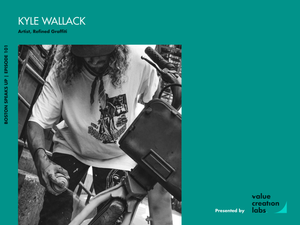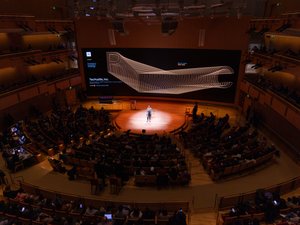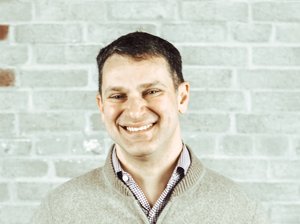
By his own admission, Robert "Bob" Stringer is not "a high-tech guru." His experience is in what he calls "good-for-you, health and wellness, food and beverage" startups.
Still, the new director of the Babson Summer Venture program - a 10-week long program that aims at accelerating the development of student ventures from Babson, Olin College of Engineering and Wellesley - knows he's likely to encounter many tech startups as the new edition of the program prepares to select the final 15.
Stringer took over the position from David Chang, who was the first non-faculty member to hold the role. He's been long associated with Babson as a lecturer; he was also the founding general partner of Sherbrooke Capital, a $100 million VC firm based in Boston.
We reached out to Stringer to discuss his appointment—plus many other things, such as how early-stage entrepreneurs tend to underestimate the importance of culture building, and the Babson companies in his portfolio.
When did you first hear about the Babson Summer Venture Program?
I have a long relationship with Babson, having taught there in the MBA program. Then, I ran a program during the summer called the "Global Entrepreneurship Program." So, I was somewhat familiar with the Blank Center, and I know David Chang [former director of the Summer Venture Program, currently CEO of Gradifi since November 2018], and I know Debi Kleiman, who runs the SVP ... She reached out to me and I expressed my interest.
Can you describe for me the moment when you thought, “Ok, I want to take over this role”?
I’ve done a lot of different things in my career: venture, investing, angel investing; I’ve started a few businesses; I teach; I’ve consulted; I’ve written some books. But there's nothing more fun, for me, than hanging out with a bunch of people who are passionate about what they do.
What is your experience about working with companies that are really, really early-stage?
I have a portfolio of, originally, 38 companies, now it's down to about 30. Included in my investments, there are four companies founded by people who were my actual students at Babson. They started from absolute scratch. So I'm very used to - and enjoy, quite frankly - working with enterprises that haven't yet been born.
Which are the four companies from Babson that you invested in?
One of the best investments is ... now based in Mexico. It's called CAAAPITAL; it is a financial technology company started by one of favorite entrepreneurs, who is a Babson student. Another one, which didn't go so well, was launched by a group of three guys from Babson who had a restaurant in New York called Yakitori, a fast-food Japanese restaurant ... Another company I invested in is a company called Cambio Coffee. It was based originally in Shanghai; the guy who started it had big ideas in China but, once again, it didn't work out in China, so he has moved the operations in Washington, D.C. The forth one is Seioko - that also was started by a student at Babson who was determined to become the McDonald's of hot dogs in China. They relocated to Macao; I'm afraid to say it didn't make it either.
You have all this experience in investing in wellness, food and beverage companies. Is there another vertical that you expect to see among the 15 ventures that will be selected for this year's SVP?
I am not a high-tech guru; my wife is [Stringer's wife is Diane Hessan, founder of C Space; one of her investments is mortgage fintech company RateGravity, now Own Up]. She has lots of technology companies in her portfolio. I have half a dozen ... My guess is, there will be some technology startups. I would image that many of the startups would be internet-enabled.
Was there a particular startup that emerged from a past edition of the Babson Summer Venture Program and caught your attention?
The Babson company that I've worked a little bit with is Waku [the Ecuadorian beverage startup founded by Juan Giraldo and Nicolás Estrella that went through the 2017 edition of the program and later dropped the 'N' from its name]. It's a good product, I think it's going to be a struggle. I helped them get into a popular market in the North End.
What do you think you’re going to learn from the students?
I spent the last year writing a book, it's called, 'Culture.com: How the Best Startups Make it Happen.' In writing the book, I've interviewed probably hundreds of entrepreneurs from all over the world... It's a lot of fun for me to quiz these startup teams to see if they have tried to figure out their product strategy, the marketing plans, how they are going to finance their business, but also the soft stuff: relationships among the founders, the culture they hope to create in their startup. My experiences, and my research, show that most entrepreneurs don't think about their culture until it's on top of them. I'm looking forward to learning what these kids think about when it comes not just to the hard business issues, but also the soft business issues.
What's your piece of advice for a student entrepreneur who’s nothing more than a person with an idea?
The biggest challenge for most of the entrepreneurs that I have worked with, particularly early-stage, is the challenge of understanding their potential customers. In the beginning, customer insights is the key to build a startup success.








